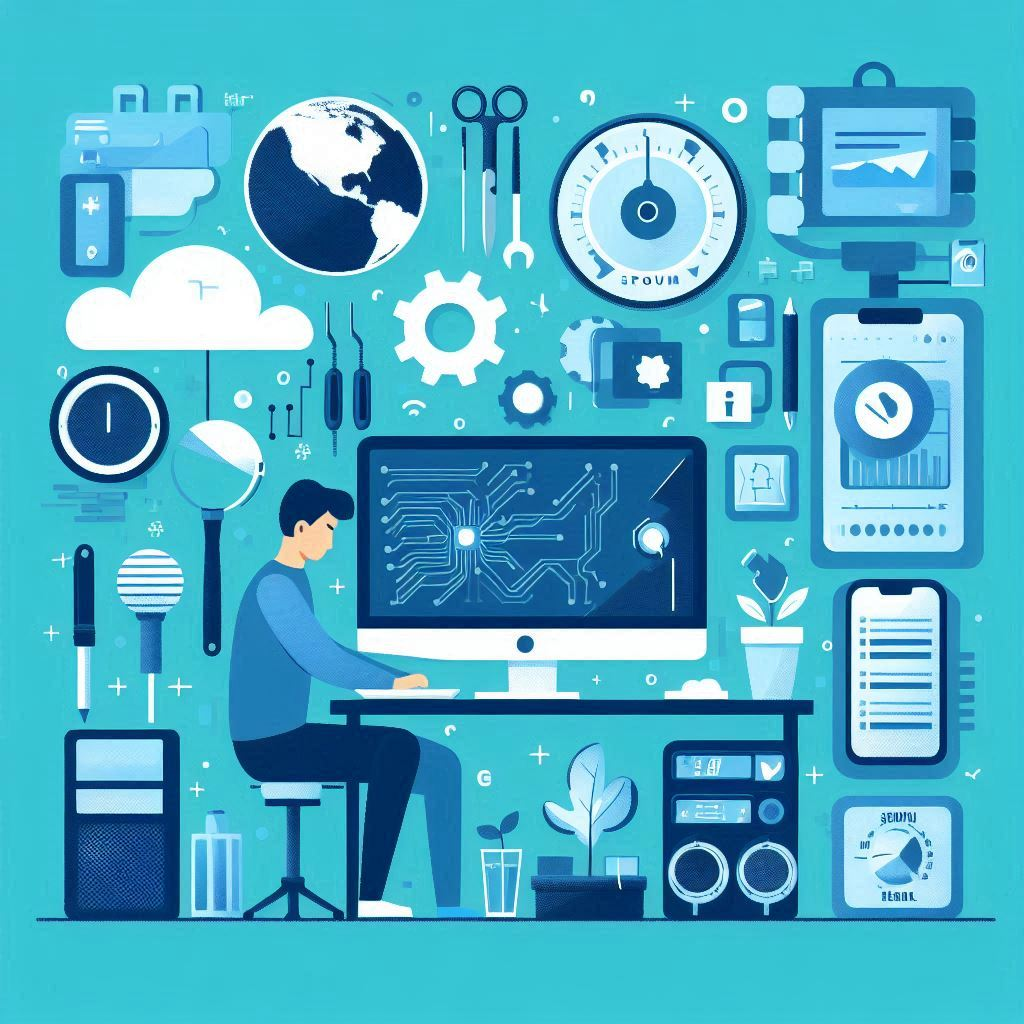Posted On 13 Jun 2024
Your computer is a valuable investment that plays a vital role in your personal and professional life. Whether you use it for work, entertainment, or staying connected with loved ones, prolonging its lifespan is crucial for maximizing its value and performance. Fortunately, with proper maintenance and care, you can extend the longevity of your computer and ensure it remains efficient and reliable for years to come. In this article, we’ll explore essential maintenance tips and tricks to help you safeguard your computer’s health and longevity.
- **Keep it Clean**: Dust and debris can accumulate inside your computer, clogging fans, vents, and cooling systems, and causing overheating and performance issues. Regularly clean your computer’s exterior and interior components using compressed air or a soft brush to remove dust buildup. Pay special attention to vents, fans, and heat sinks, and consider investing in a laptop cooling pad or desktop fan for added ventilation.
- **Update Software Regularly**: Operating system updates, driver updates, and software patches are essential for maintaining the security and performance of your computer. Enable automatic updates whenever possible to ensure you receive the latest bug fixes, security patches, and performance improvements. Additionally, keep your antivirus software and other security programs up to date to protect against malware, viruses, and other online threats.
- **Optimize Storage Space**: Over time, your computer’s hard drive can become cluttered with unnecessary files, temporary data, and redundant applications, which can slow down performance and reduce storage capacity. Regularly declutter your hard drive by deleting unused files, uninstalling unnecessary programs, and organizing your data into folders. Consider using disk cleanup tools or storage optimization software to free up space and improve performance.
- **Practice Safe Browsing Habits**: The internet can be a breeding ground for malware, phishing scams, and other online threats that can compromise your computer’s security and performance. Practice safe browsing habits by avoiding suspicious websites, downloading files from reputable sources, and being cautious of email attachments and links from unknown senders. Install ad-blocking and anti-tracking browser extensions for added protection while browsing the web.
- **Monitor Temperature**: Overheating is a common cause of hardware failure in computers, especially laptops and desktops with inadequate cooling systems. Monitor your computer’s temperature regularly using built-in diagnostic tools or third-party software and take steps to prevent overheating, such as ensuring adequate ventilation, avoiding blocking air vents, and using laptop cooling pads or desktop fans.
- **Backup Your Data**: Data loss can occur due to hardware failures, software glitches, malware infections, or other unforeseen circumstances. Protect your valuable data by regularly backing it up to an external hard drive, cloud storage service, or network-attached storage (NAS) device. Set up automatic backups whenever possible to ensure your data is continuously protected against loss or corruption.
- **Handle With Care**: Physical damage can significantly impact your computer’s lifespan and performance. Handle your computer with care, avoiding dropping, bumping, or subjecting it to extreme temperatures or humidity. Use protective cases or sleeves when transporting laptops, and ensure desktops are placed on stable surfaces away from potential hazards.
- **Upgrade Components When Necessary**: As technology advances, your computer’s hardware may become outdated or insufficient to meet your needs. Consider upgrading components such as RAM, hard drives, or graphics cards to improve performance and extend the lifespan of your computer. Consult with a professional technician or research compatibility and installation instructions before making any upgrades.
By implementing these maintenance tips and tricks, you can prolong the lifespan of your computer and ensure it remains efficient, reliable, and secure for years to come. Regular care and attention to your computer’s health will not only save you time and money on repairs but also enhance your overall computing experience. Remember, a little maintenance goes a long way in safeguarding your investment and maximizing the value of your computer.









